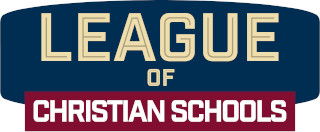A recent article from our good friends at Council for American Private Education (CAPE) appeared in the CAPE Outlook(February 2019). It is reprinted with permission below.

That same week, the country erupted into an uproar over an encounter between high school boys from Covington Catholic High School in Kentucky and a couple of other groups of protesters at the Lincoln Memorial in Washington, DC. The conclusions people drew from an apparent stare down between Covington student Nicholas Sandmann and Native American activist Nathan Phillips served as a sort of Rorschach test for where people stand on a host of cultural issues. However, one commonly articulated theme was that bad behavior from boys at a private, religious high school should come as no surprise. After all, did not Brett Kavanaugh attend such a school?
Fortunately, there have been voices in the commentariat who have pushed back forcefully against this meme. Writing in the Wall Street Journal, William McGurn, while describing the controversy over the students from Covington Catholic, observed, “One of the lesser known things about Catholic schools is that they boast a 99% high-school graduation rate—with 86% going to a four-year college, nearly twice the 44% rate of public schools. Particularly in the inner cities, these schools are a lifeline, not least for the tens of thousands of non-Catholic children of color who without that education might be condemned to lives lived at the margins of the American Dream.”
Moreover, many who jumped to all-to-quick conclusions over what happened in front of the Lincoln Memorial ended up walking back their comments and promising to do better next time. And a New York Times piece on the #ExposeChristianSchools hashtag did in the end give those who had positive experiences at Christian schools some chance to be heard.
Still, it is hard not to notice that articles are being written and reports issued about the fact that religious schools are receiving public support through tax exemptions and school choice programs even though they adhere to teachings on human sexuality currently out of favor. There will be increasing legislative, legal, and regulatory challenges ahead for religious schools, but politics is ultimately downstream of culture. If society sees religious schools as “bastions of bigotry,” and private schools in general as walled-off enclaves for the well-to-do, the best lawyers and legislators will ultimately be of no avail.
It is therefore crucial that proper attention be given to the immense contribution that private schools – religious schools very much included – make to local communities and to the common good of the nation. Religious schools must not think that they can be saved by religious exemptions alone. They need to tell the story of how they change the lives of young people for the better, otherwise all of the constitutional and statutory protections in the world will in the end amount to what James Madison called, in Federalist 48, mere “parchment barriers.”
In the face of reporting that simply assumes as a given that their conduct policies are motivated by pure animus and bigotry, religious institutions operating in the educational space will need to be willing to explain and defend what they believe, and not be bullied into silence.


